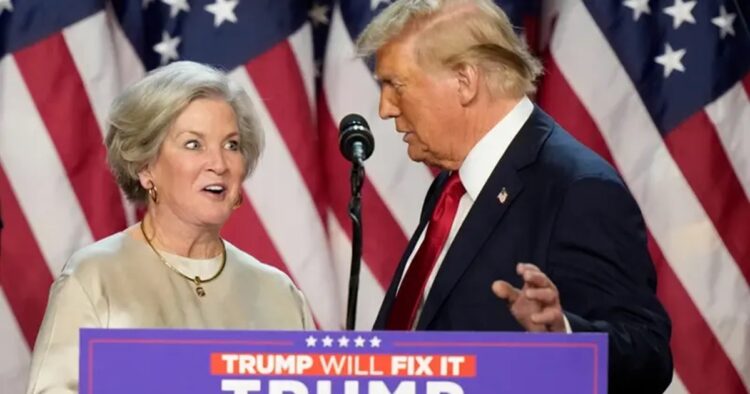President-elect Donald Trump has named Susie Wiles, the defacto manager of his campaign, as his White House chief of staff, the first woman to hold the influential role. Wiles is credited within and outside Trump’s inner circle for running what was, by far, his most disciplined and well-executed campaign, and was seen as the leading contender for the position.
She avoided the spotlight, even refusing to take the mic to speak as Trump celebrated his win early Wednesday morning. She resisted the formal title of campaign manager, avoiding becoming a target, given Trump’s history of cycling through people in that role. Wiles’ hire is Trump’s first major decision as president-elect. Wiles doesn’t bring much federal government experience to the role, but has a close relationship with the president-elect.
On the campaign, Wiles was able to do what few others have been able to: help control Trump’s impulses by earning his respect and showing him that he was better off when he followed her advice than flouting it. Eight years ago, Trump tossed the planning of his transition team and instead hired a motley assortment of campaign aides, family members and Republican insiders who spent the better part of his first year in office engaged in infighting that dominated news coverage of the new administration.
It was what many experts consider a foundational mistake that hamstrung a president who was new to Washington and government upon his swearing in. Trump went through four chiefs of staff — including one who served in an acting capacity for a year — during his first administration, part of a record-setting personnel churn.
Many top aides were cast out by Trump in his first term, who resented being made to feel managed or condescended to, while others got caught up in ideological spats within the factionalized West Wing. Trump aides see hope that Wiles’ selection marks a sign that the president-elect is aiming to build a more cohesive team, though one that will almost certainly remain less conventional than his Democratic or Republican predecessors.

















Comments